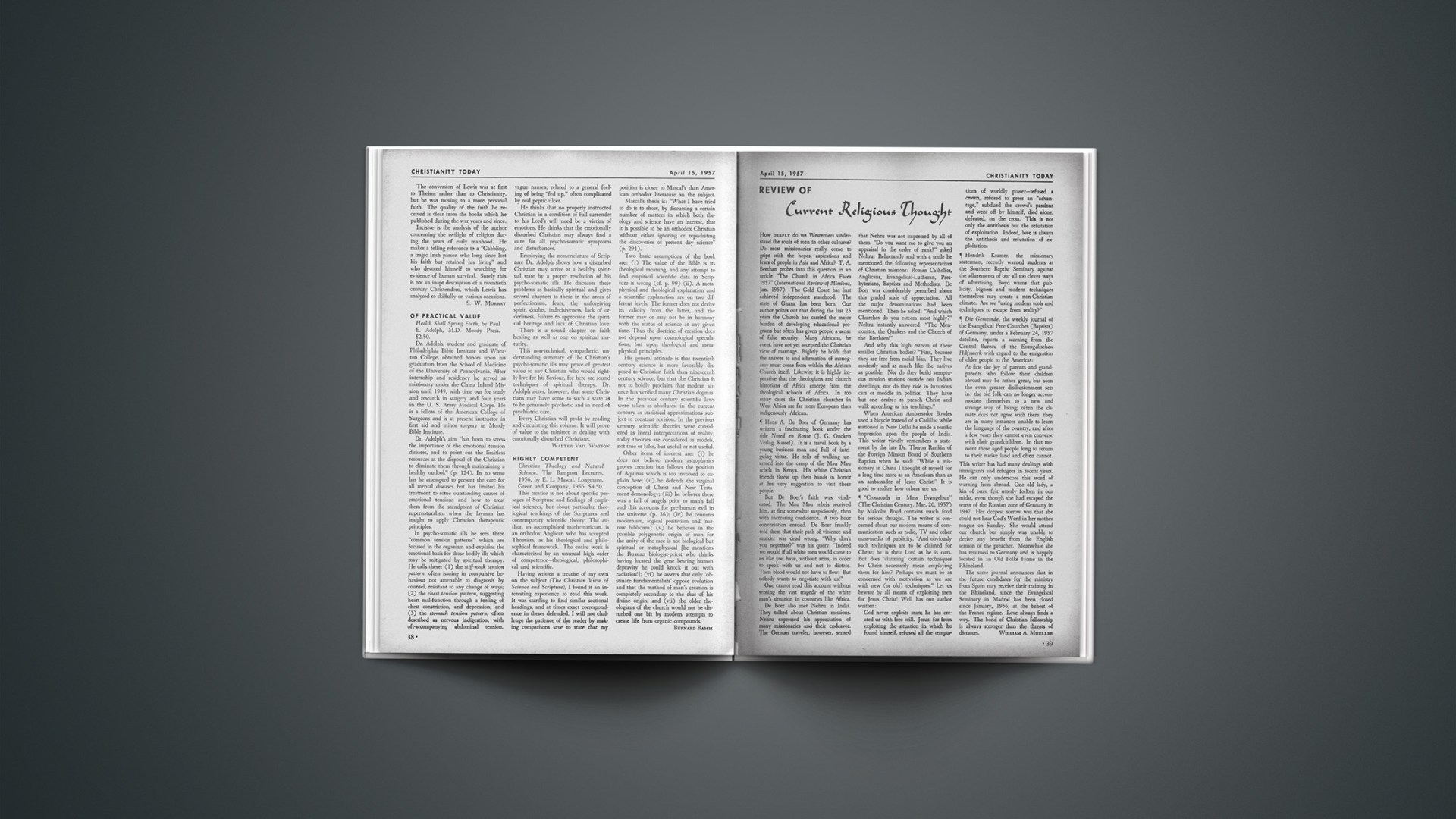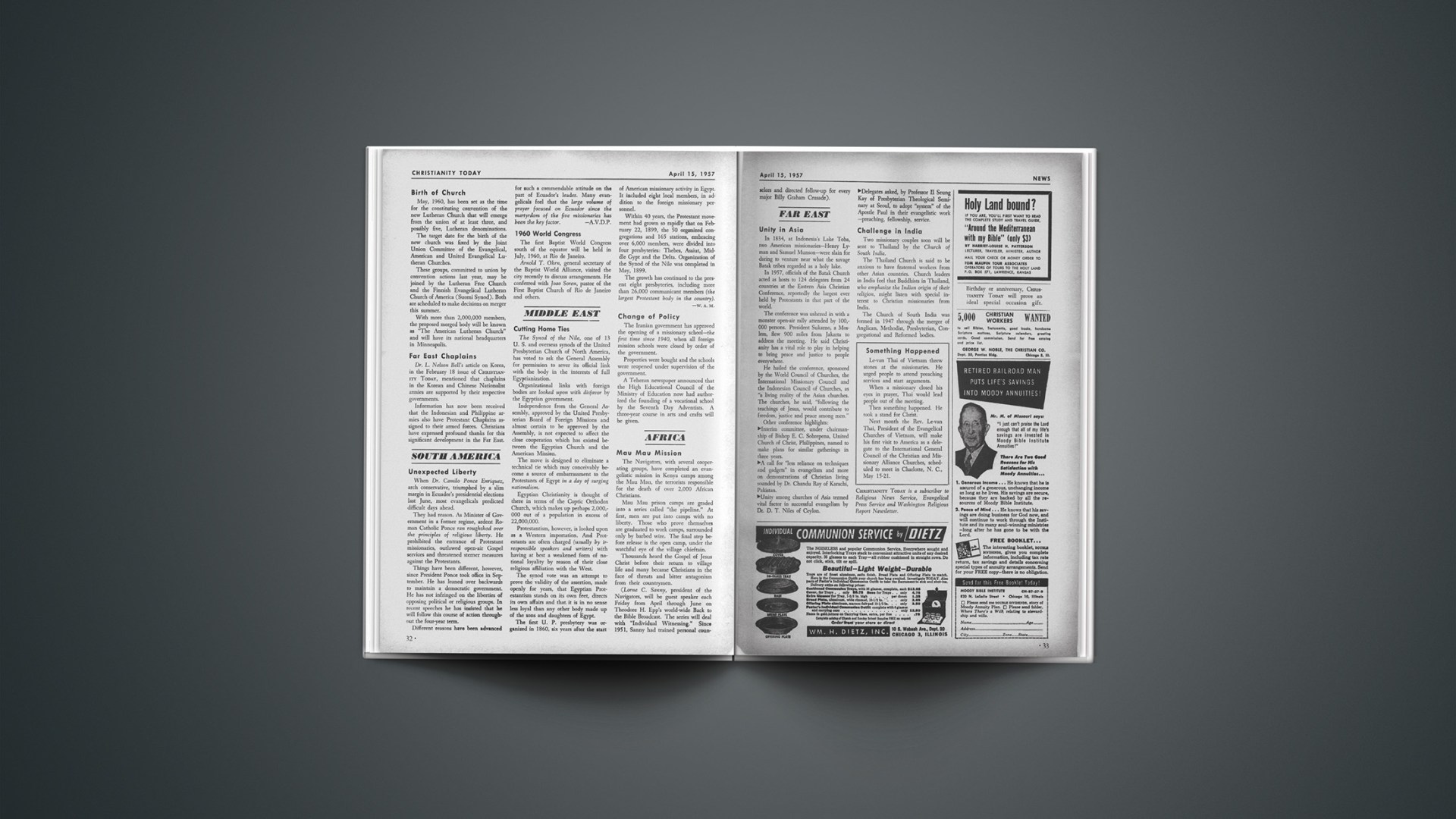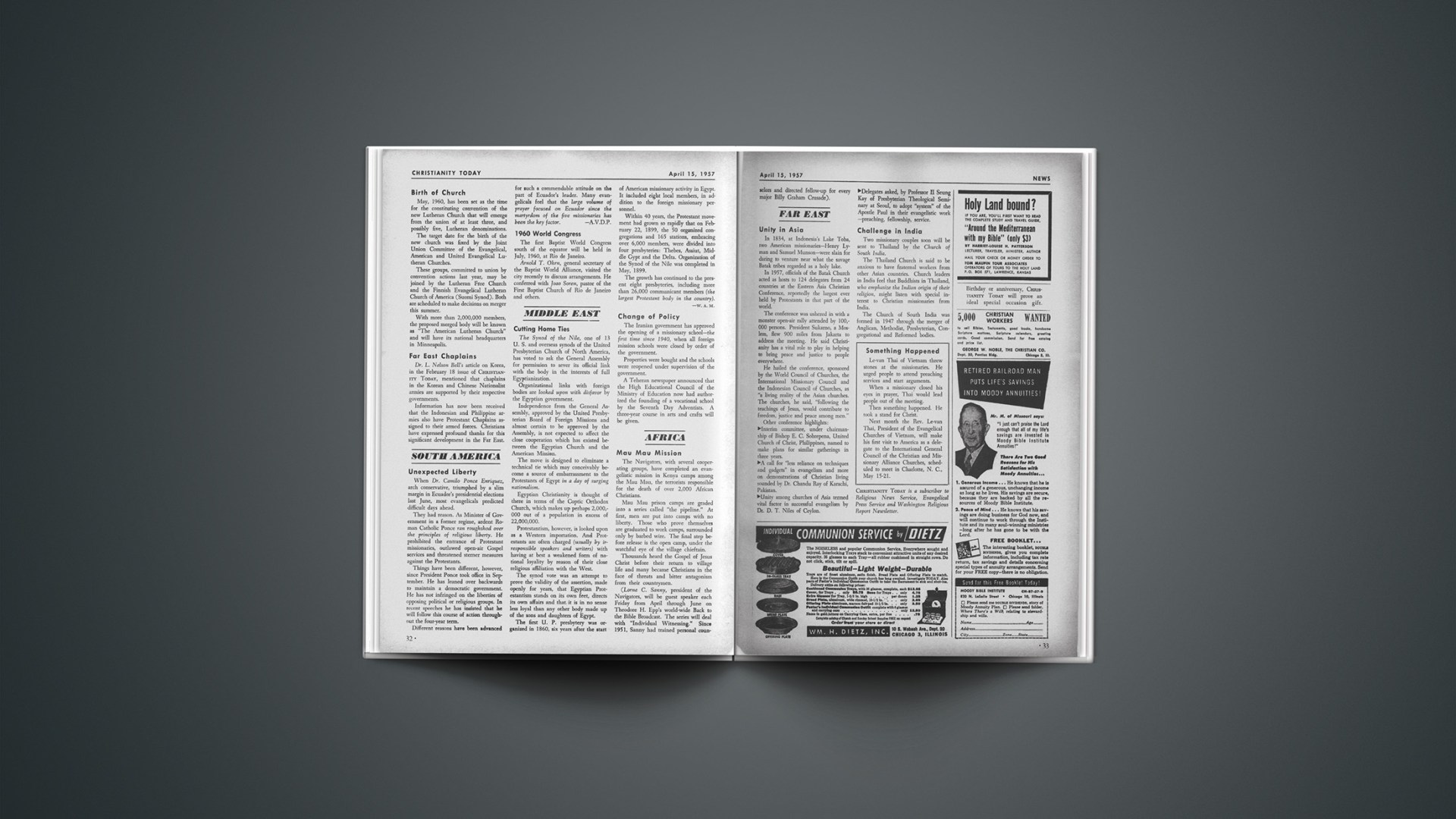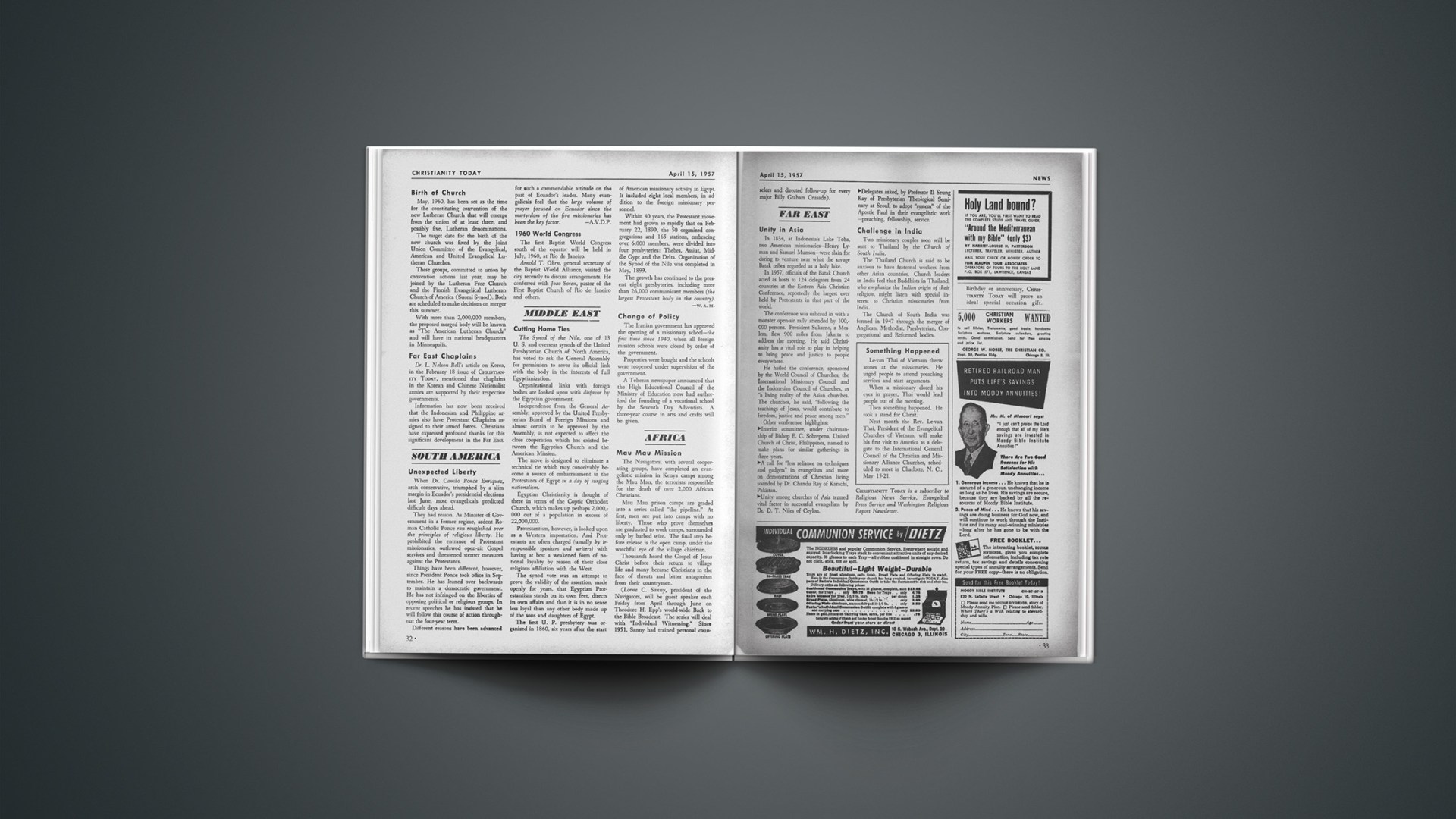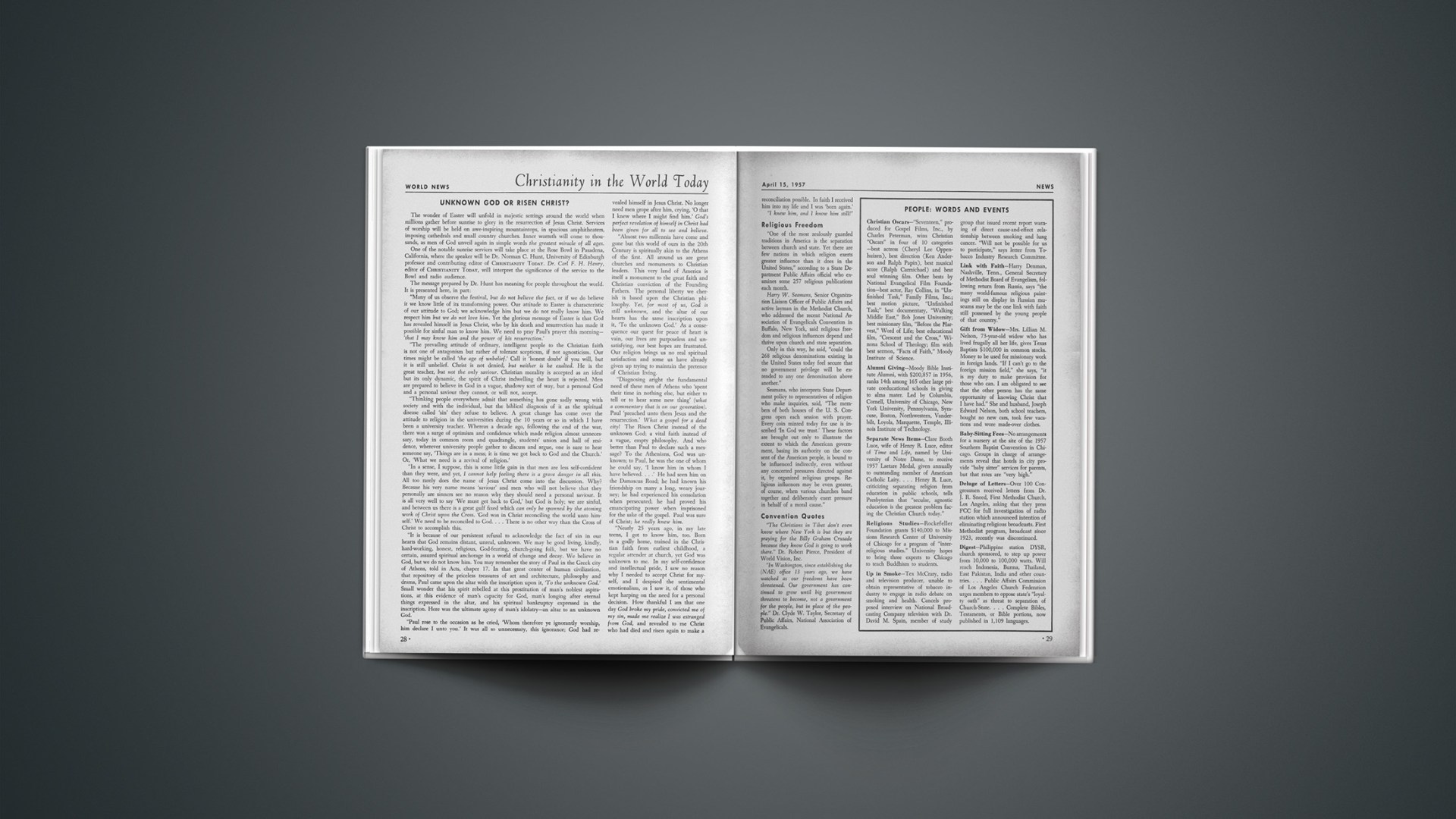The Headship of Christ is a biblical truth that has come to a fuller recognition in the Reformation and in the Reformed Church. All Christians profess Christ as the heavenly head of the Church. But clericalism in Roman Catholicism and its counterpart in other denominations, places the word of the church on a level with the word of her Lord. True Protestantism subordinates the decisions of the church to the voice of the Lord. For the evangelical, the church is the servant of the Lord, not his confidential adviser. The Headship of Christ carries the implication that the risen Redeemer, whose gracious presence brings forgiveness and spiritual life, is the sole King and the only Lawgiver in Zion.
Historical Setting
The high watermark of the Reformation was Luther’s act of hurling into the flames the canon law of the Roman Church, December 10, 1520. The lawyers stood aghast, for that law had ruled Europe for a millennium. Luther likewise realized the gravity of his act. He told his students that to continue to follow him would mean martyrdom for them as it would for him. But he also reminded them that since they now knew the Gospel, to forsake it meant Hell. Thus the authority of the Roman Curia was cast down; the word of the Saviour was to be the only rule in the Church of the Gospel.
Luther, in his way, took up the tradition of Wycliffe and the Hussites, even as in turn his glorious testimony was carried more completely into the government and worship of the Church by Zwingli, Calvin, Knox and the Scottish Kirk. Our Reformed heritage holds that the Holy Scriptures, as the mouth of the Lord, contain all that is necessary for Christian faith, life and worship.
The Evangelicals in Scotland sought a warrant from the Divine Writ for everything introduced into the government and worship of the Kirk. The Episcopalians and the Erastians acknowledged the mystical Headship of Christ over the individual believer, but the Presbyterians and the Evangelicals insisted, in addition to this mystical Headship, upon the juridical Headship, or Kingship, of Christ over his corporate people. For them the Bible was the ultimate constitution and the only lawbook for the Church.
The Biblical Basis
In his earthly ministry, our Lord affirmed his authority to forgive sins, to cast out demons, to set forth doctrine, to give eternal life, to execute judgment, to lay down his own life and to take it again. After his Resurrection, Jesus declared that all authority had been given unto him in heaven and on earth. At Pentecost, Peter pointed to him exalted to God’s right hand, as Lord and Christ, occupying there the throne of which David’s throne in old Jerusalem was the type. As a result of the work of Christ, Satan fell as lightning from heaven. In place of the adversary, there is now at God’s right hand the mediator, the prince and Savior who gives repentance and the remission of sins. “Now is come the salvation and the power and the kingdom of our God, and the authority of his Christ; for the accuser of his brethren is cast out” (Rev. 12:10). As a result of his life and death of obedience, Christ was given by the Father the name which is above every name, his own name of Lord. God has placed all things under his feet and given him in this plenitude of lordship to fill his body, the Church, with all things needful for her blessing and her ministries.
The Church is pervaded by his presence, animated by his spirit, filled with his life, energies and grace, governed by his authority and used as his instrument for bringing men into his all-embracing act of salvation. He is the sole head of the Church, which receives from him what he himself possesses and is endowed by him with all that she requires for the realization of her vocation.
Application To Life
Features of the application have already been indicated in this treatment. Fundamental in the thinking of our Scottish forebears was their conception of the proper attitude of a loyal heart to our gracious Savior and king. A loyal spirit cannot brook the thought that our King of Grace is niggardly in the provisions he has made for his people. Accordingly, the way of plenty and of progress in the church is the narrow way of the sole headship and kingship of the Lord Jesus Christ.
For one thing, the sole headship and kingship of Christ is placed over against any allegiance owed by the Church to any state. In 1638, the Kirk of Scotland unfurled a blue banner with the legend “For Christ’s Crown and Covenant.” Marshaled under this banner, the Kirk repelled the efforts of King Charles to force upon her officers a worship not warranted in the Word. In 1752, the Rev. Thomas Gillespie refused to share in the installation of Andrew Richardson at Inverkeithing because he was appointed by the patron against the will of the parishioners. In 1833, Dr. Thomas Chalmers led the Free Kirk out of a state control that enforced patronage. In the United States in 1861, the commissioners of the Southern Presbyteries organized what is now the Presbyterian Church in the United States as a protest against the effort to tie the allegiance of all Presbyterians to President Lincoln and the Federal government. In addition to the Southern organization, protest was filed against the 1861 loyalty resolutions by a minority in the Old School Assembly led by Dr. Charles Hodge. Moreover, the 1953 General Assembly of the Presbyterian Church in the United States of America recognized that its majority action in 1861 was in error.
Calvin sets forth two governments, Church and State, each ordained by God, neither subject to the other. The Christian is subject to the one as a believer, to the other as a citizen. Under the sole Kingship of Christ, the Church is subject neither to the Roman Pope, nor to the British King, nor to the American President, nor to a German Fuhrer nor to any communist dictator.
A Specific Commission
Second, the Church recognizes the Headship of Christ in seeking to do only those things which he has commissioned her to do. As she receives Christ’s righteousness by his saving presence, so also the Holy Spirit makes her his instrument to preach his word, mortify the flesh and manifest his love to men. The Church is not in the world to find problems to solve or issues on which to pass resolutions. She has her gospel given her by God, the proclamation of Christ as prophet, as priest and as king, the testimony to the grace of his coming in humiliation and the glory of his coming in power. She is commissioned to offer the Gospel of free salvation through his atonement, to expound the word to his body, to be the pillar and ground of the truth, to carry the evangel to all nations. It is not her business to carry out every good thing that needs doing in the governmental, international, economic, social or political structure of the world.
Sufficiency Of Scripture
Third, the Headship of Christ proclaims the Holy Scriptures as the unique and sufficient rule of faith, of practice and of worship. The Church is not merely to give pious advice, neither is she a lawmaking body. She is a court to declare, rather than a legislature to make, laws. She is to declare, administer and enforce the law of Christ given in the word. Without a scriptural warrant she can make no requirement binding the consciences of men. Those who seek to legislate on their own authority are reminded that it is a man-sized job to get people to live according to the Bible—without adding to it. We can err in interpreting and applying Scripture; we multiply error when we first make our own laws and then use the Church of God to enforce them. Accordingly, nothing ought to be regarded as a matter of offense or as a cause for discipline in the Church except that which can be shown to be contrary to the word of God.
The King’s Orders
Fourth, the Headship of Christ is recognized in the effort to conform worship and government to those things the king has provided in his word. The injunction against worshipping graven images is united with and to some extent hidden under the First Commandment in the Roman Catholic and Lutheran numbering but is given full force as the Second Commandment in the Reformed faith. With this emphasis, the Reformed Church has sought to introduce into God’s worship only those things provided in his word. Pictures have pedagogical value, but God has not ordained them to be used as aids in his worship. We would tread the courts of the Most High only in the ways of his ordering. The Good Book is also the book of common worship, the book of etiquette instructing us in how we ought to conduct ourselves in the court of the King of Kings.
Similarly, the question of what officers the Church ought to have, and whether they are to men or women, is first of all a question of the ordering of the King. The Church is not in the first place a democracy, but a theocracy (1 Cor. 12:28), a Christocracy (Eph. 4:11), a pneumatocracy (Acts 20:28). Thus the election of officers in a congregation is not democracy’s right to choose whom she would as her spokesmen; but God’s trusting the priesthood of believers to elect those men who have the marks he has laid down for their respective offices.
Finally, the Headship of Christ means that the officers of his ordaining receive their positions, empowering gifts, authority and equipment from the Lord Jesus, and to him they are primarily responsible. The ministers and elders in the Church are the representatives of the people, but they are also the delegates of Christ.
They are not lords over God’s heritage, but servants of him who came not to be served but to serve and to give his life a ransom for many. The chosen rulers are those whom he has called, equipped with his Holy Spirit, and given to the Church to minister to her. They can minister effectively only as the Holy Spirit mediates to them and through them the living Christ with his saving work. And he does this not by making Christ or his Church subservient to the plans of men, but by calling us into his program and using us for the promotion of his kingdom of grace.
William Childs Robinson has been Professor of Historical Theology at Columbia Theological Seminary, Decatur, Ga., since 1926. He is the author of numerous works, including Christ the Hope of Glory, Who Say Ye That I Am and Christ the Bread of Life. He holds a Th.D. degree from Harvard University and has studied abroad at the University of Basel.




